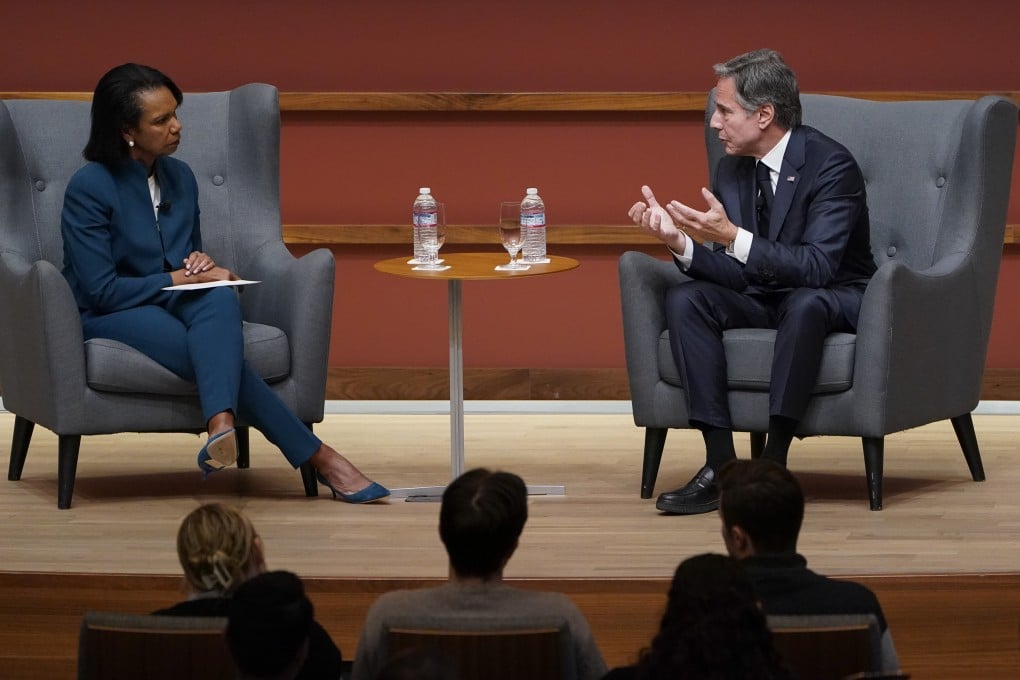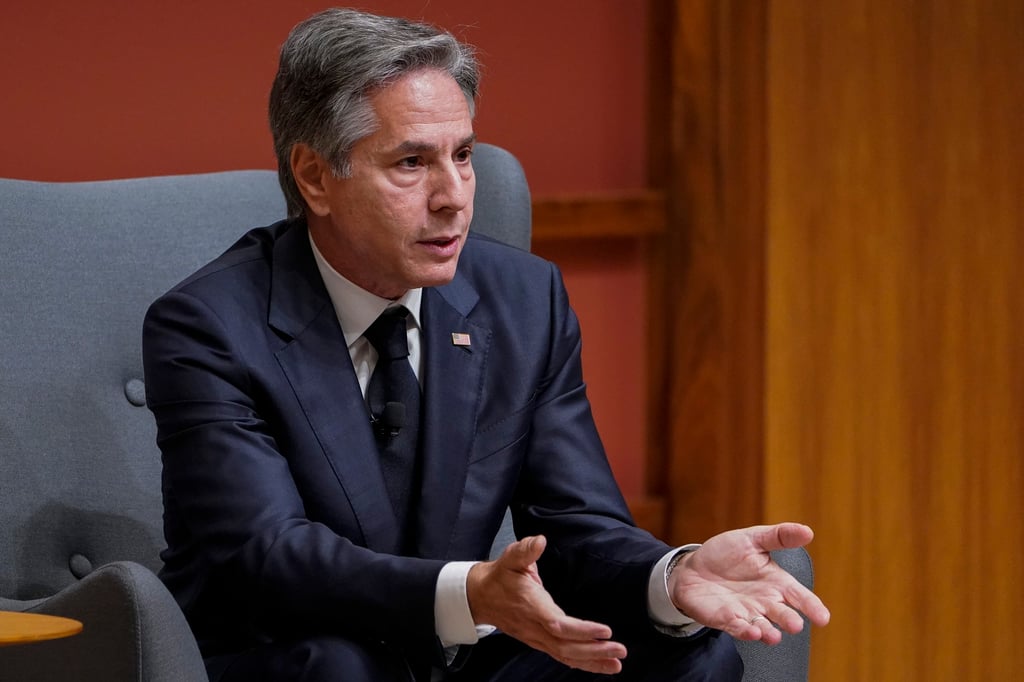Despite conflicts, Antony Blinken says US must not ‘lose sight of cooperative aspect’ of China relationship
- The US secretary of state says problems like climate change and global health will be difficult to solve if the two nations ‘are not actually engaged’
- Speaking at Stanford University, Blinken observes that China under Xi Jinping ‘is more repressive at home’ and ‘more aggressive abroad’

Just days after the Joe Biden administration imposed aggressive restrictions on China’s access to semiconductors and identified China as a threat to American security in its separately unveiled National Security Strategy, Secretary of State Antony Blinken said on Monday that though a “very different” China had emerged under Xi Jinping’s leadership, the United States should not “lose sight of the cooperative aspect” in the nations’ bilateral ties.
The remarks came as Chinese President Xi Jinping is set to be ordained as the paramount leader of the Chinese Communist Party for a third term at the 20th national party congress in Beijing.
Blinken, appearing at Stanford University in California, answered questions about technology, diplomacy and national security from former secretary of state Condoleezza Rice, who held the post in the George W. Bush administration from 2005-09 and is now the director of the university’s Hoover Institution.
While saying that China “is more repressive at home” and “more aggressive abroad” under Xi, Blinken stressed that “it’s important not to reduce this to a bumper sticker”. He described Washington’s relationship with China as among the “most consequential”, “most challenging” and “most complicated” and said recent years had seen the competitive aspect of the relationship become the “front and centre”.
That competitive tone will “shape what comes next after this post-Cold War period”, he said, adding that the world’s major challenges will be difficult to tackle “if the United States and China are not actually engaged in trying to solve climate, global health, etc”.
In August, China suspended all cooperation with the US in punitive action after House Speaker Nancy Pelosi visited Taiwan, a self-ruled island that Beijing claims as its own. In his two-hour keynote report at the party congress on Sunday, Xi vowed to take “all measures necessary” against “interference by outside forces” regarding Taiwan.

Blinken said the US and countries around the world had a profound stake in peacefully resolving the Taiwan issue.
